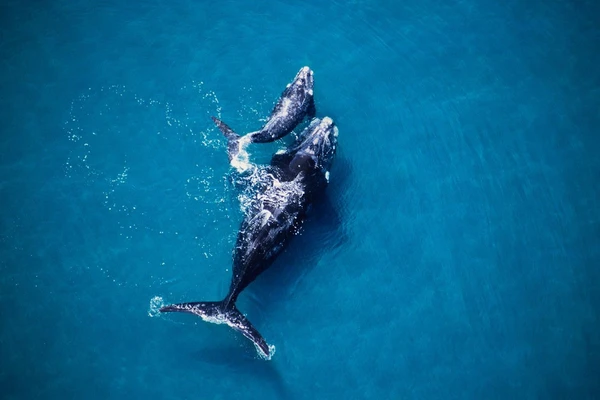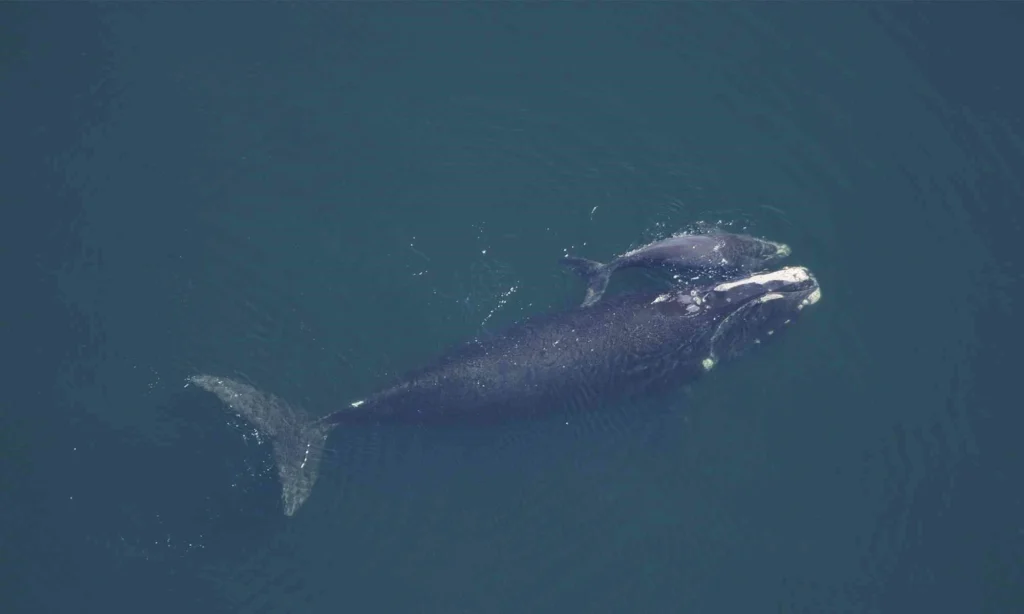A study finds that female right whales may never breed after fishing gear entanglement.
About Right whales:
- Right whales are three species of large baleen whales of the genus Eubalaena: the North Atlantic right whale (E. glacialis), the North Pacific right whale (E. japonica) and the Southern right whale (E. australis).
- They are the rarest of all large whales.
- The name “right whales” is commonly believed to stem from the idea that they were considered the right ones to hunt.
- This is because they float when killed and frequently swim within sight of shore.
- Conservation status: International Union for Conservation of Nature (IUCN): Critically endangered.
Feeding:
- They are baleen-feeding whales, which means they use a comb-like strainer of baleen plates and bristles to catch tiny food, such as zooplankton and other tiny organisms.
- This filter feeding method allows them to consume small organisms through their baleen system.
Features:
- Right whales are recognized for their massive heads, comprising up to one-third of their body length.
- Classified in the Balaenidae family alongside the bowhead whale, they boast rotund bodies with arched rostrums, V-shaped blowholes, and dark gray or black skin.
- They have callosities, rough, white patches of keratinized skin found on their heads.
- These callosities provide habitat for large colonies of cyamids or whale lice, which feed on the right whale’s skin.
Threat:
- Right whales were hunted for their oil and baleen, which were used for corsets, buggy whips, and other items.
- They face threats such as entanglement in fishing gear, ship collisions, bycatch, and climate change.
Ref:Source
| UPSC IAS Preparation Resources | |
| Current Affairs Analysis | Topperspedia |
| GS Shots | Simply Explained |
| Daily Flash Cards | Daily Quiz |



